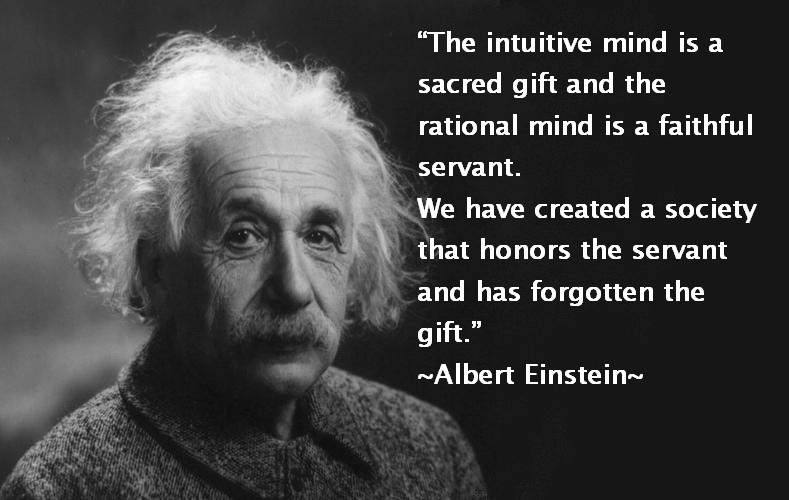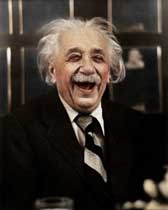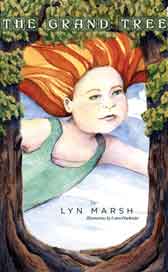Welcome back fellow adventures of the Between, to a new series where Einstein and his companions will intervene in the current world. Thank you for being part of this journey with me! With the mystery and wonder of love in a world becoming new … Lyn
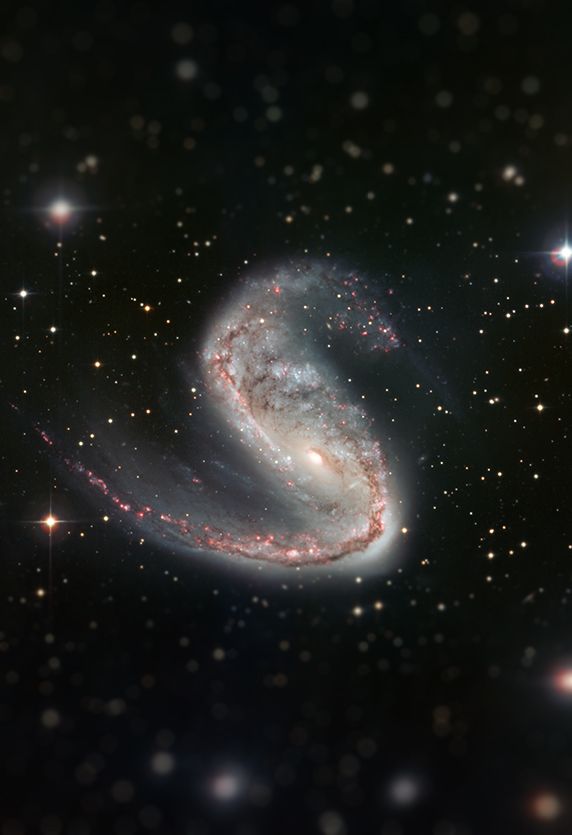
Albert Einstein slips between space-time after his physical death. He is staring into a Cosmos … an entire universe… that is staring back at him… in a moment not measured in time or space. Einstein leans into rhythmic waves of light as he surrenders to an Awe that shatters his attempt to think in a familiar way. His thoughts move through him.
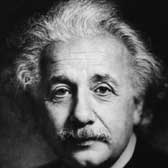 Einstein:
Einstein:
I must be dead. My life was a blink that held forever. Could I have shaken myself awake and made better friends with my own human being … so that in just one of those moments, I would have grasped a greater bit of the realization of who I really am? My life … Could I have known more of the vastness of its gift?
A tremor stirs in the hush of my soul … I could make love to the universe, itself! Is this what it feels like? And I feel a deep stillness inside … I’m not sure how I got here. What did she ask me? I remember melting into her entrancing stare, and then, oh yes, she asked me— “Who are you?” She disappeared before I could let her know how I yearn to know myself. Who am I?
A mysterious old one appears, standing by Einstein’s side:
Old One:
Physics was at the center of your life. Let’s explore the metaphors. You changed the course of physics yet you could not find resolution for your Unified Theory. Could the paradox of it all have revealed resolution? You loved exploring paradox in your life.
You lit up as you let go of the problem and slipped in the between of your concern or exploration. It was there that you bore your relativity theory.
How about the paradox that relativity and quantum theories, both coexisted? You never resolved the paradox of something existing locally and separate, independent of any measurement … or of something existing non locally, so it could potentially be anywhere or everywhere for you.
And you did not find peace in the paradox of the universe having a chaotic nature and at the same moment having a nature with beautiful harmonious order and balance …
Einstein:
I can sense now, how quantum theory and relativity theory each held part of a mystery I couldn’t grasp. For me, quantum theory depicted subatomic reality as a hodgepodge of chaotic possibilities and probabilities — where subatomic particles interacted at random. And if they were entangled with one another, they stayed directly connected through something other than communication, as we know it, regardless of the distance.
I didn’t believe the subatomic world was separate from the world we related to as humans. I didn’t see humans or animals around me connecting randomly. I knew there had to be some kind of natural divine order; and that the universe could not exist on probability alone.
As I look into the cosmos, I can see a wild chaos within and throughout this wondrously beautiful order and its exquisite balance. I can sense that in this chaos — there is also a beautiful order unfolding infinitely. It all stirs me to untame my imagination to be free — in its effulgent extravagance. It allures me to love and to be embraced by love … I am at a loss for words. And I have no names to call this love. I want to give this cosmos… the unfathomable of my soul.
Old One:
You are answering your question.
Einstein looks into the Old One’s eyes … pauses … then continues with his thoughts.
Einstein:
Searching for a harmonious order always intrigued my soul; yet I was wary of oppressive order. Just look at what the Nazi’s did. Even as a boy, I was afraid that someone would make me walk in step, like the marching soldiers in those parades my parents took me to see. But back to the question you asked me … who am I?
Einstein turns to look at the Old One, and she is no longer there. Kurt Godel, a mathematician at the Institute for Advanced Study in Princeton during Einstein’s lifetime, appears behind Einstein … as if out of the blue … walking toward him as he talks.

Godel:
Well, according to Platonism we find who we are on a higher plane. And here we are — standing in this higher plane. My explorations, in my life, led me to discover hidden secrets that would seem to undress themselves as I looked deeper into the mystery of mathematical theorems. This is why I valued intuitive mathematics. Its innocence and purity stirred something in me … to come out of those dark dank caves of my inner torment … and wonder about what amazing secrets could hide inside …
Godel turns and looks into Einstein’s eyes.
I don’t know what I would have done without you in my life. I missed you so, and could not quite recover, after you died. You were the only other person in the world I trusted, next to my wife, Adele.
I worked intensely to support your theory of relativity. From my Incompleteness Theorem, I proved that there would always be truths in life, that mathematicians would not prove to be true. And I specifically pointed out, that because of this, they could not negate your Unified Theory.
I hoped that my birthday surprise for you would confuse the quantum theorists, just a little. I know it was disconcerting for you when I proved, using your own relativity theory, that time travel was potentially possible, both to the past and future.
Essentially, I was really showing us that time, as experienced by humans, did not really exist, except as an illusion.
Your response to my gift for you, was gracefully honest.
Einstein:
How we enjoyed our talks. The gift you gave me on my 70th birthday kept us entertained for the rest of my life!
Thank you for joining me, Kurt. I am still spell bound in fascination … with your gifts; and I hope we can continue our lively conversations on this higher plane … a place Between … where we now find ourselves, right here … in this moment.
Are we not also here to somehow ‘create’ ourselves from this eternal vastness of what is Unknown to us — Unknown by its very nature. We stand here together, and how much do we really know about who we are?
Godel:
I have not yet fully dealt with my terror of the unknown. I was often afraid that someone would poison me. That I trusted you and Adele was a miracle.
I used my mathematics to reach into infinity without having to be vulnerable to humans. When I slowly starved myself to death, after Adele became debilitated, I didn’t have a deep fear of death, even though I felt lost in my life.
Somehow, I knew from my intuition, that some powerful and sacred force knew of my existence — personally. I knew infinity was something I could lean into, and I believed I would continue to exist after my physical death.
Einstein:
What was it about me you trusted, Kurt?
Godel:
When I looked into your eyes, I saw innocence and I sensed a genuine curiosity from you, to know me. Not because you could use what I told you … but you wanted to know who I was; you wanted to know my soul. I trusted you the first time I looked into your eyes.
Einstein:
There was nothing wrong with your innate ability or willingness to trust, Kurt. You had been deeply wounded in your soul, and you couldn’t cope with the mixed intentions you intuitively picked up from people. You will find the lost parts of your soul, here … and your trust of yourself, and of life, will return with elegance. This is what I see.
Thank you for that birthday gift! No one could refute your math. Your support of me, touched my heart, when Oppenheimer was referring to me as being ‘cuckoo’! As I think of it, I would have rather been ‘ cuckoo’ … than to follow his focus in life.
We had so many fascinating talks about your research and discoveries! You kept me very entertained when I was becoming bored with my own theories!
Einstein turns back to look at Godel, and he is gone. He sees a few chairs overlooking the cosmos, and he sits down in one. Paul Langevin, a fellow physicist during his lifetime, appears in the chair next to him. Einstein turns to him.

Langevin:
It was fun to think about your theory of special relativity and about who would be younger or older as they moved through space/time … and from whose perspective … There was music in it all, and yes, if not you, I would have brought this forward in my writings.
It wasn’t a fear of oppressive order that frightened me most. Although, that enraged and grieved me. But my deeper fear was about loving someone, so that if we lost one another, it would be quietly devastating, and I would lose hidden but cherished dreams of ever having that ecstatic union again.
The one time I took that risk, the love I most cherished, slipped away … and I secretly lost myself, for the rest of my life. I’m glad you and I held on to our friendship … and to our fascination for exploring the mystery of life. I think this helped us find each other, again … now in our afterlives…
Einstein:
Yes, I agree and I’m glad to be sitting here with you, my dear Paul. Thank you for finding me. Oh,the mystery of life… of love. Yes, we love mystery, don’t we?!
I know what you mean about being frightened of having union with another! I would never really give myself to one love because I thought it would hold conditions and that someone would pressure me to give up my wild free spirit and all that it found so enchanting… I did so enjoy those intensely intimate moments, though… the ecstatic union, of which you speak. I also loved the sensuality and muse of it all!
I wanted most to live my life where the mystery of my intellectual and spiritual pursuits had room to reveal itself. I refused for anyone to take this from me; and I fought for others to have this, too! But I could have given more of that wonderful mystery … to love.
Einstein becomes silent in the pause of his remorse and a tear leaks from his eyelid.
Marie Curie walks in from behind Langevin … appearing as if out of nowhere. She sits down in a chair facing Langevin and joins the conversation.

Curie:
I always hold you in my heart, Paul. I saw deep love as humiliating; and I lost my connection with its mystery. I let the shame stop me from expressing my love for you… I felt humiliated at what happened to my reputation, and I felt abandoned by you. It seemed that you slipped away. Even though, now I understand more …
And here we are … together in this moment … at the edge of endless beauty.
I realize now that I will always hold the love we once shared … as a part of me. Wherever you or I may be, there our love will also be. It is here that this secret reveals itself … as my defenses have long surrendered into leftover dust in a world in which I used to live my life.
I loved the mystery of my discoveries of new elements … of the x-ray… of all of my fascinating work with radiation … But it was my work with radiation that resulted in my death. I gave myself Aplastic Anemia. If I had given love … more of myself, I believe I would have taken better care, and I would have had a more fulfilling life— loving you, and myself.
Langevin:
I will never lose my love for you, again, Marie … You are a part of who I am.
As they look into one another, their afterlife bodies fade together.
Another physicist from Einstein’s lifetime, Erwin Schrodinger mysteriously enters this Between at the edge of the Cosmos and sits in a chair across and to the left of Einstein.

Schrodinger:
Oh my, what an amazing thing. I was daydreaming, and the dream began dreaming itself, and now here I am! What an odd and wondrous occurrence.
You were speaking of love with Marie and Paul, were you not? Passion was the wild stallion of my love. I knew without my passion, I could lose my inspiration … and my ideas could go limp. I kept searching for the muse, in alluring young women.
I feel different here. I am spewing with fascinating ideas and musings, and they appear to be coming out of nothing. And yet I am also creating them. I can’t know which it is, until I look inside. Oh, what a delight to find you here!
Einstein:
Here we are again! I am interested in your statement about how you have fascinating thoughts and musings spewing out of yourself, coming from nothing … and yet you sense you are creating them.
It is the mystery of it all, that makes it so alluring, isn’t it? It seems mystery is more a part of who we are now. I am more of a mystery to myself than I ever imagined. Who are we?
Schrodinger:
Hum. Who are we? What Is Life? I did my best to look into this! Darwin’s answer for life had its severe limitations. It emptied the life out of life.
De Vrie’s mutation theory brought the mystery back when he discovered that mutations are due to quantum jumps in the gene molecule. It is mysterious … similar to some action in the quantum. It is amazing that deVrie’s paper on mutation nearly coincided with Max Planck’s founding of quantum theory, with its quantum jumps.
So there is a mystery in what underlies those quantum jumps. Maybe we jumped around from one expression of being in one moment to another … or maybe we jumped from one lifetime to another.
Maybe we even jumped from linear time to circular or spiral time … Maybe linear time was less real than we knew.
And what about entropy [molecular disorder] and negative entropy [life-giving order]. The way a living form in the physical world stays alive is by exchanging material with its environment. So if it remains isolated, it will move naturally into entropy and quickly die. But by receiving and giving energy/matter, it thrives.
The most successful at living are attracting a resonance of negative entropy, to diminish the entropy they produce. You can see the beauty in exchange … And when you look into it, you can see how life is meant to give and receive from itself. And so what we chose to give and to receive … contributed to the design and order of our lives, didn’t it? I can’t say I am proud of everything I gave my attention. But I kept the wonder and passion alive in my life. And I kept searching for deeper meaning and significance … to find order in the disorder of entropy.
Einstein:
That is so much of what I appreciated about you. Can you say more about the relationship of order and disorder?
Schrodinger
It is interesting to ponder how there are two ways to produce order — first from disorder, and second from order itself. We are familiar with producing order from order. But what does it mean to produce order from disorder from chaos. This is nature’s way.
I don’t believe we really produce order from chaos. Maybe we discover the light in chaos … the light chaos … and as we become enchanted with this, its inherent mysterious expression of order unfolds naturally … like I discovered in my dream of being here in the dream state … and now I am here in this beauty. I know I’m not orderly in my communication. I might even be a bit chaotic … I don’t have a direct answer to your question.
Einstein:
As you are giving us your intriguing thoughts, I am thinking of the energy ‘between’ paradox. I was talking with a mysterious old one about this before you all arrived. I think of the paradox of entropy and negative entropy [neg entropy]… and how we needed both for our lives to exist in the physical realm. One destroys and the other gives life.
We also needed both the dark and light chaos. I think they in a dance with one another, continually giving themselves to the other. Death needs life. Life needs death. And the same goes for dark and light. Dark and light are both a part of us.
The world, polarized, splits them into good and bad. Yet, in my mind, they are more about the mysterious Unknown, as well as the known and that which enlightens us. Life can be an adventure, rather than a labored, painful struggle, as humans can allow it to embrace them in this way.
I guess, out of our fears, we may have tried to control life to look like what we thought it should be, to avoid that threatening Unknown of who we were/Are.
Schrodinger:
Oh, this is interesting! In my life I wrote about how there was a wall separating two paths … that of the heart and of pure reason. What would have happened if we could have pulled this wall down? Would this have resolved some relentless control for power, and contempt of bias that existed in the thinking power in our time?
Kirchhoff and Mach seemed to march to that tenet … that physics must adhere to complete and economic description of only the observed facts. This rashness of believing they had understood a phenomenon, when they had only grasped the facts by describing them … still irks me.
Nature offers this complexity with elegance. And if we look closely, there is so much in the relationship that nature has with itself … more than looking at one thing, like a proton, and then trying to separate it out from the whole based on pure observation.
Einstein:
I know what you mean. Quantum physics in our time, said we could not purely be an observer, that we were also participants. So, maybe they contradicted themselves when they said the atomic world was separate from the world we saw with our own eyes. They were also participants as were their measuring devices. They seemed to have missed the view outside themselves and their own subatomic research. Some of them responded with contempt toward those of us who advocated understanding the bigger picture! They were participant humans in a human world, who opened their eyes when they saw atomic life.
Now you can see my contempt. We had our own moments of contempt for those technicians and physicists. I sense that we were all necessary … so we could come to know more of who we really are … I remember what you said in your book. I will quote you.
“I am very astonished that the scientific picture of the real world around me is very deficient. It gives a lot of factual information, puts all our experience in a magnificently consistent order, but it is ghastly silent about all the sundry that is really near to our heart, that really matters to us. It cannot tell us a word about … physical delight …[or] of beautiful and ugly, good or bad, God and eternity …”
Schrodinger:
I am so moved by our conversation, as always, Albert. Your mind and heart are open and inviting. And you listen as a magical buddha child who is in love with the moment, for all that is present in the moment … in the light … and in that which lies deeper in the mystery … in the Unknown.
And we sit at the edge, looking into this unfathomable universe … I could be here with you, forever … I see what you say … Life is an adventure … And the adventure never really ends … I feel like I could disappear into the essence of ecstasy itself!
Einstein feels the cosmic wind lift him from his conversations with past dear collogues. Some force is redirecting him … Where?
copyright © 2013-2017, Lyn Marsh,PhD, all rights reserved. You may not reproduce materials without permission from Lyn Marsh,PhD.
References: Einstein by Walter Isaacson, What is Life? and Other Scientific Essays by Erwin Schrodinger, A World Without Time by Palle Yourgrau
Top photo: Face to Face”, and was created by MachiavelliCro
Lazaris.com

